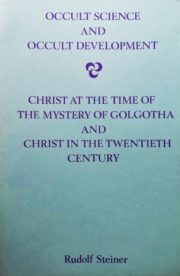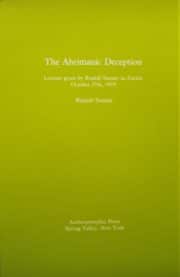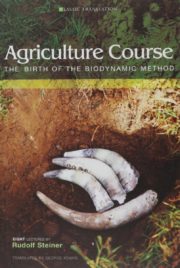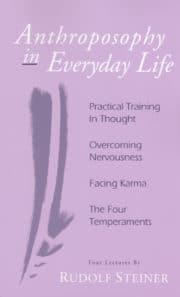The Occult Significance of the Blood
This lecture series given each year at the Architect’s House in Berlin from 1904 to 1918 (CW 55)
Steiner, a philosopher, occultist, and founder of anthroposophy, explores the significance of blood in various cultures and religions, as well as its role in the human body and its connection to the soul.
The book is divided into three parts. In the first part, Steiner discusses the spiritual significance of blood in ancient cultures, including the use of blood sacrifices and blood rites. He also explores the concept of blood as a symbol of life force and vitality, as well as its connection to the divine. In the second part, Steiner delves into the physiological aspects of blood, including its composition and function in the human body. He explains how blood is intimately connected to the soul and how it can be used as a tool for spiritual development. Finally, in the third part, Steiner examines the role of blood in modern society, including its use in medical treatments and blood transfusions. He also discusses the dangers of blood transfusions and the importance of understanding the spiritual implications of blood.
Overall, The Occult Significance of Blood is a thought-provoking and insightful book that sheds light on the spiritual and esoteric meanings behind one of the most fundamental aspects of human life.
About the Author
Rudolf Steiner (1861–1925) was born in the small village of Kraljevec, Austro-Hungarian Empire (now in Croatia), where he grew up. As a young man, he lived in Weimar and Berlin, where he became a well-published scientific, literary, and philosophical scholar, known especially for his work with Goethe’s scientific writings. At the beginning of the twentieth century, he began to develop his early philosophical principles into an approach to systematic research into psychological and spiritual phenomena. Formally beginning his spiritual teaching career under the auspices of the Theosophical Society, Steiner came to use the term Anthroposophy (and spiritual science) for his philosophy, spiritual research, and findings. The influence of Steiner’s multifaceted genius has led to innovative and holistic approaches in medicine, various therapies, philosophy, religious renewal, Waldorf education, education for special needs, threefold economics, biodynamic agriculture, Goethean science, architecture, and the arts of drama, speech, and eurythmy. In 1924, Rudolf Steiner founded the General Anthroposophical Society, which today has branches throughout the world. He died in Dornach, Switzerland.













Reviews
There are no reviews yet